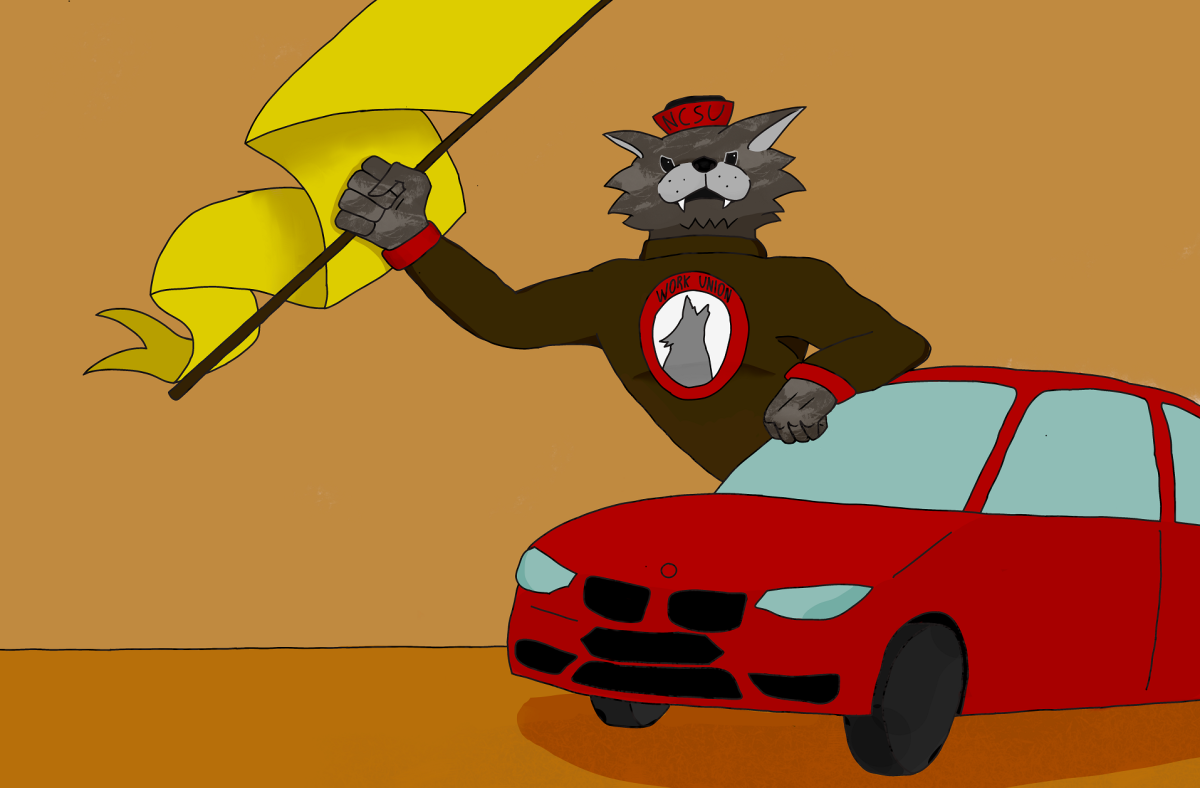*Editor’s Note: the previous version of this article stated “RA” as “resident advisor,” but has been changed to accurately reflect the correct title, which is “research assistant”
After almost a year of socially distant and virtual operations at NC State, many graduate students have felt increasingly disenfranchised by the University. The NCSU Graduate Workers Union, a coalition of teaching and/or research assistants within various university departments, has been advocating for the University to improve worker conditions on campus.
Jessica Gonzalez Delgado, a fifth-year Ph.D. candidate in chemistry, said the union seeks to organize both graduate student workers and campus workers for labor improvements.
“We try to make sure that the campus workers, so people in housekeeping and grounds, are just informed on their rights at the workplace,” Gonzalez Delgado said. “We also have the agenda for graduate students, where we’ve been fighting for getting rid of the student fees and stuff that’s important to us.”
According to Gonzalez Delgado, the NCSU Graduate Workers Union has advocated for various issues relevant to graduate students and campus workers, including increased workplace protections and salaries. Due to the COVID-19 pandemic, Gonzales Delgado said the union shifted to address some of the newer issues university workers faced.
“We were fighting for classes to be completely online,” Gonzalez Delgado said. “We were also trying to make sure all the campus workers were getting the information they needed, and we just wanted them to know that they have the right to [personal protective equipment] and paid leave.”
According to Brent Boland, a fifth-year Ph.D. candidate in physics, the biggest issues graduate students face are financial, with low stipends and student fees fueling the stress of graduate student life. Boland said a large portion of the services that student fees cover are only useful to undergraduate students, with the exception of mental health services like the Counseling Center.
“You come with the understanding that even though there is tuition, the tuition is basically covered [by the stipend], so you’re really getting brought in like, ‘Well, you’re going to have some classes, but then you’re doing work and here’s the amount of money you’re gonna get paid,’” Boland said. “And so when student fees keep going up, it’s like getting a pay cut every year.”
With the minimum graduate student stipend at NC State starting off at $8,000, Boland said many graduate student workers feel economically strained throughout the year, with humanities students often facing stipends closer to the minimum. By comparison, Boland said Duke University’s minimum stipend starts at approximately $25,000 a year after its union was able to successfully discuss with Duke administration for stipend improvements.
As a result of this economic strain, Boland said many teaching and research assistants felt forced to accept in-person teaching and research positions during the COVID-19 pandemic.
“The person volunteers to work the in-person position, but basically the alternative is that they leave the program because they can’t afford tuition and they’re not supposed to get an outside job,” Boland said. “So people were put in very difficult positions where they felt forced.”
While social-distancing guidelines have made it harder for campus groups to meet in general, the NCSU Graduate Workers Union had many public initiatives this semester, including a car caravan protesting the unsafe campus reopening and a mask sale. Internally, Gonzalez Delgado said the union has continued many of its work education programs, including an anti-racism committee to educate student workers on diversity and inclusivity.
“It’s definitely been harder to do tabling on campus, but I think we adjusted pretty well to moving things online,” Gonzalez Delgado said. “We actually had an increase in participation because when we met in person, people didn’t have that much time off and people couldn’t make it.”
With collective bargaining being illegal in the state of North Carolina, Boland said the union resorts to public pressure and demonstration campaigns to let administration know about problems.
“I think the relationship we have right now is that we talk past each other,” Boland said. “We may bring attention to something, and the University may do something to address it, but they won’t mention the union at all if they make a change, so it’s not like a direct understanding.”
Despite groups such as the Graduate Student Association existing on campus, Boland said the NCSU Graduate Workers Union stands out for focusing more on labor issues. With the union becoming an official chapter of UE Local 150, the North Carolina Public Service Workers Union, in 2020, Boland and Gonzalez Delgado said they hope to continue growing the number of union members in the future.
“As [a research assistant]* and a [teaching assistant], you do work as a student, but you’re also an employee,” Boland said. “You want to make sure that your interests as an employee are looked after and not just your interests as a student, and so I think it’s important to have an union, to have a body that can represent your interests.”













